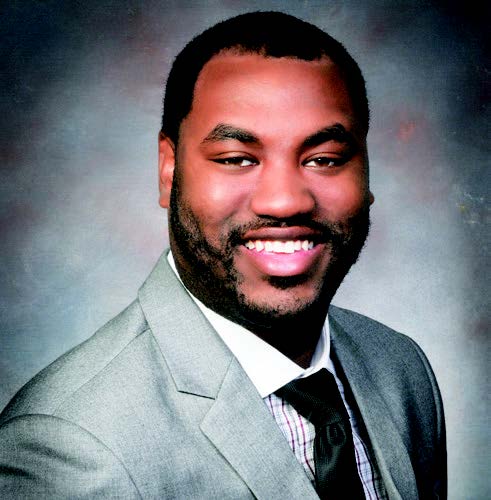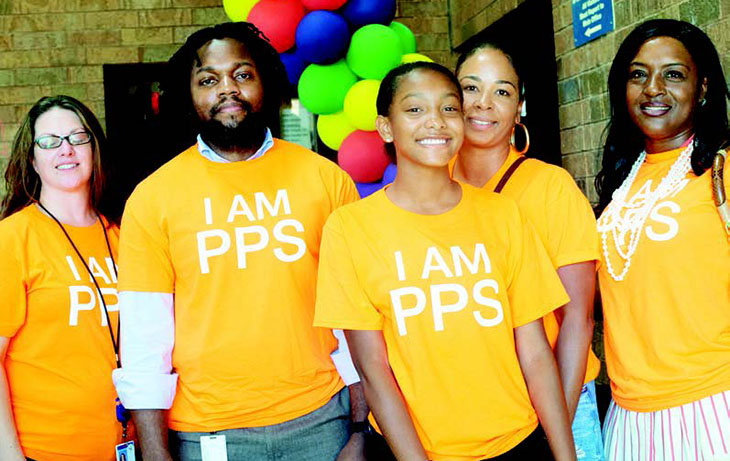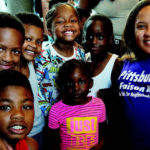School board to vote on proposed resolution on July 31
by Rob Taylor Jr.
Courier Staff Writer
Professional baseball is back! The Pittsburgh Pirates are finally back on the field, but none of their pitchers could throw the type of curveball that Kevin Carter tossed.
He’s the outspoken Pittsburgh Public Schools board member who, during a July 22 online legislative session, proposed a resolution to keep all 23,000 students in the district away from their physical school locations for the first nine weeks of the school year, which begins in late August.
Only a few days before Carter’s proposal, the district had composed a highly-detailed Health and Safety Plan, which, as it pertained to the reopening of schools, featured a blended learning model where some students would have in-school instruction on Monday and Tuesday, and in-home learning on the other weekdays. Other students would have in-school instruction on Thursday and Friday, and in-home learning on the other weekdays.

KEVIN CARTER, the PPS School Board member who introduced the resolution for all students to learn at home for the first nine weeks of the school year.
The plan was also packed with how the district would sanitize its schools and buses, and how schools would practice social distancing in classrooms.
The district, in its plan, had an option for students to have full-time in-home, or remote, learning. The district reported more than 4,100 students had been enrolled in this option as of July 22.
Which means nearly 19,000 students would have been returning to a physical school next month in some form…but now, it may not happen.
The debate has raged on cable news outlets and nightly news programs for the past two weeks— should students return to a physical school location or learn from home, due to this highly contagious coronavirus which has tried its best to bring this country to a halt.
“We cannot indefinitely stop 50 million American children from going to school, harming their mental, physical and emotional development,” President Donald Trump said to reporters recently. “Reopening our schools is also critical to ensuring that parents can go to work and provide for their families.”
President Trump, who has very little support from African Americans nationwide, continues to reiterate that children’s immune systems seem to fight off the virus better than adults. But that doesn’t stop many parents and teachers across the country from thinking that in-school learning should be delayed. Polls released this month by entities like the Associated Press and Quinnipiac University showed that the majority of those polled don’t believe schools should reopen in the fall.
In Los Angeles and San Diego, the decision has already been made to delay in-school instruction at the beginning of the school year, until further notice. More districts across the country will do the same.
But Pittsburgh most likely wasn’t going to be on that list, until Carter’s proposal, even though the district maintained it always had the option to choose remote learning for all students if COVID-19 conditions worsened.
“Whereas the board…recognizes and understands the very real and serious threat COVID-19 poses to the public health of our communities, and whereas the board…and the superintendent…have the ultimate authority and responsibility for ensuring the health and safety of all staff, students and partners operating in our facilities, and whereas the board…acknowledges that while in-school instruction is a much more effective option than remote learning for some of our students, we cannot in good faith open schools until our state and federal government gets the virus under control,” Carter said to the board.
“You hit the nail on the head,” PPS Superintendent Anthony Hamlet, Ed.D., said in response. “Right now we’re at a space where we can see continued spikes of COVID—not just in Allegheny County, but this is across the United States.”
It wasn’t that long ago when Allegheny County was placed in the “green phase” by Gov. Tom Wolf —June 5, to be exact. Nightclubs and bars were able to reopen, and over the next few weeks, the younger end of the county’s residents partied like it was “1999.”
From June 6 to June 21, the county never had more than 31 positive cases of coronavirus in a single day. But soon came the effects of the reopening—there were 71 cases on June 22, 119 positive cases on June 24, and 158 cases on June 26.
County officials tightened restrictions once again to try to slow the virus’ spread, as COVID cases reached 243 on July 1, and 275 cases on July 2.
Though the numbers haven’t been that high lately in the county, the bars are still, in effect, closed. And while the bars being closed has no real correlation to the schools, the bigger picture is that COVID-19 is still alive and well in Allegheny County.
PPS School Board member William Gallagher called Carter’s resolution the “true definition of moral courage. It’s the ability to act rightly in the face of popular opposition.”
Gallagher is in support of the resolution, saying, “We have to do it.”
Fellow board members Pam Harbin and Terry Kennedy support the resolution, as well. “The decision to start off with remote learning, I think, is the only decision we can make right now to keep everybody safe,” Harbin said.
Kennedy said she “100 percent” supports the all-remote-learning option. “A delay of nine weeks gives us a lot more time to work out the details. As we always say, the devil is in the details, and there are a lot of questions out there that parents are having, teachers and other staff are having.”

Pittsburgh Public Schools could have all students learning from home for nine weeks beginning Aug. 31. (Photo by Courier photographer Gail Manker)
If the district does decide to not have in-school instruction this fall, what is the effect it could have on parents who must go to work away from the home? Who will watch the kids? It’s a question that parents had to face at the beginning of the pandemic when schools closed beginning in mid-March, and they could face it again.
Up the road in Cleveland, however, their school district survey of parents found that most of them were weary of sending their children back to school. Thus, the Cleveland Metropolitan School District, home to 37,000 students, recently made the decision to delay in-school learning for the first nine weeks.
PPS School Board member Sala Udin believes that students, as a whole, took a “step back” in their learning this past spring due to the remote learning. He told fellow board members during the July 22 session that if students did not return to the classroom this fall,“It is an even more important requirement that we have a robust learning methodology and system and standards so that our children do not keep going further and further behind.”
A final vote on the proposed resolution will take place on July 31. There are nine PPS board members.
“The only irresponsible thing for us to do is put kids in school buildings,” Carter said. “Public health trumps what we want as individuals. I refuse to make a child do something that I wouldn’t do. I don’t plan on stepping in school buildings this fall, so I shouldn’t vote to make somebody’s child do what I would not do, and nobody should. If we are saying that we take this virus seriously, we need to demonstrate that through our vote.”
 STUDENTS ENJOY THE PITTSBURGH PUBLIC SCHOOLS’ Back-to-School celebration at Pittsburgh Faison in this August 2018 photo. While there will be a Back-to-School celebration this year on Aug. 21 near Heinz Field, it’s unclear if the school year will begin with in-school and remote learning, or just remote learning. (Photo by Gail Manker)
STUDENTS ENJOY THE PITTSBURGH PUBLIC SCHOOLS’ Back-to-School celebration at Pittsburgh Faison in this August 2018 photo. While there will be a Back-to-School celebration this year on Aug. 21 near Heinz Field, it’s unclear if the school year will begin with in-school and remote learning, or just remote learning. (Photo by Gail Manker)